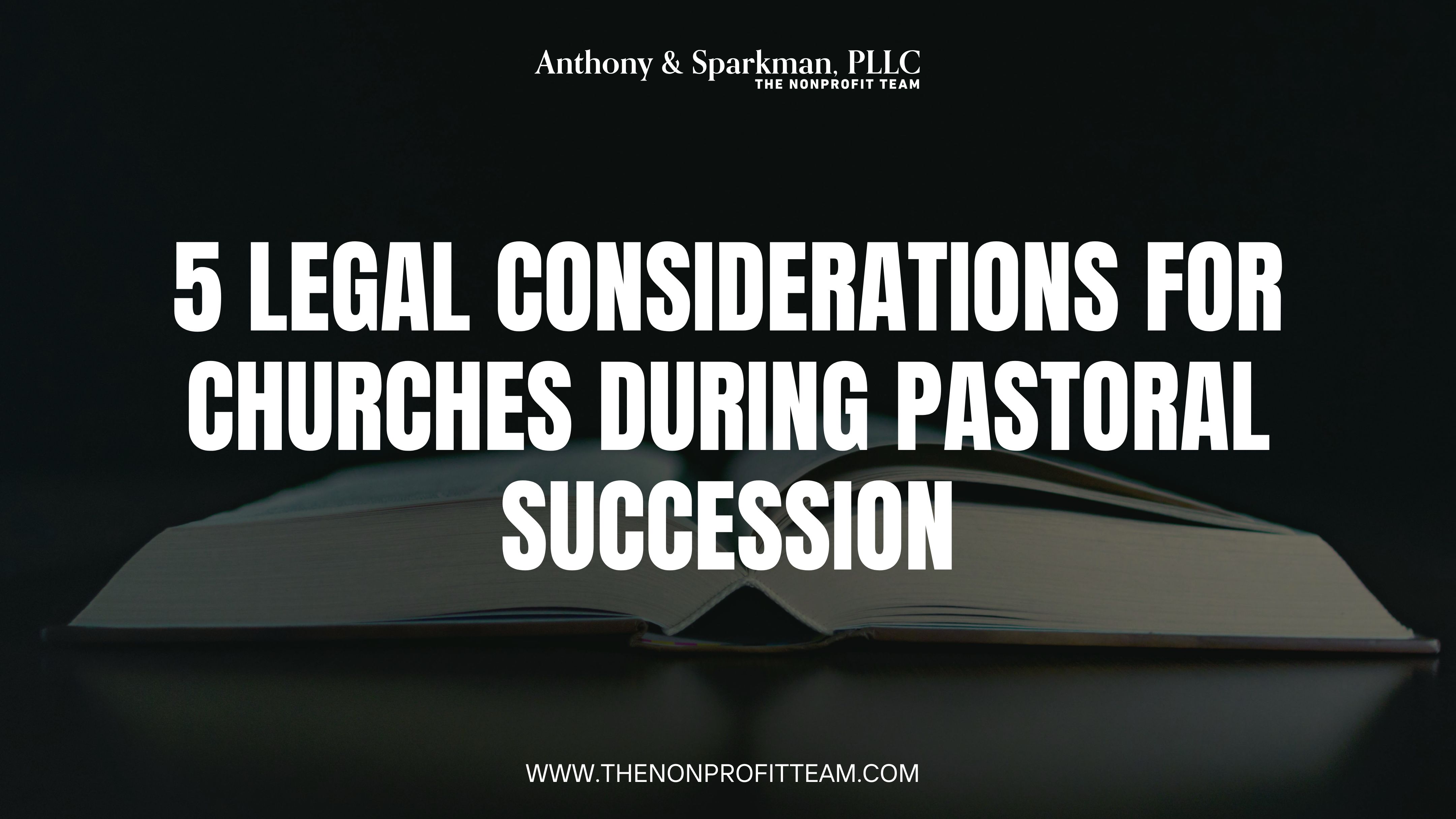
5 Legal Considerations for Churches During Pastoral Succession
Succession planning is critical for every church. Failed successions can be incredibly painful for pastors, church members, and the boards responsible for their execution. Beyond selecting the next pastor, legal considerations can make or break a smooth transition. Churches that overlook these key areas risk disputes, financial strain, and even damage to the congregation’s trust.
Here are five important legal considerations your church should address during pastoral succession:
1. Review Church Bylaws and Governance Documents
Church bylaws are the backbone of any succession plan. They dictate how leadership transitions should occur, the roles of the board, and voting procedures. Ensure that your bylaws are current and legally enforceable, and verify that any succession plans align with these documents.
Tip: Consider having an attorney review your bylaws to ensure they comply with state and federal law.
2. Understand Pastoral Employment Contracts
Employment agreements often cover retirement benefits, emeritus status, and severance arrangements. Knowing exactly what your pastor is legally entitled to can prevent misunderstandings. Pay close attention to:
- Retirement and pension obligations
- Vacation and sick leave payout
- Housing allowances or parsonage agreements
3. Plan for Retirement and Benefits Obligations
Pastors may have opted out of Social Security or have unique retirement accounts like a 403(b). Boards should plan for how these obligations will be fulfilled post-retirement.
Tip: Maximize transparency by discussing retirement expectations with the pastor well before their planned transition.
4. IRS Compliance and Tax Implications
Retirement gifts, housing allowances, and other benefits have IRS rules that must be followed. For example:
- Retirement gifts must not be tied to services rendered post-retirement.
- Housing allowances must comply with IRS regulations.
Tip: Reference IRS Publication 517 and consult a tax professional experienced in clergy compensation.
5. Confidentiality and Record Keeping
Transition periods often involve sensitive information such as donor data, personnel records, or church financials. Ensure that all confidential information is properly secured and that records are accurately maintained throughout the succession process.
______
Pastoral succession is more than selecting a new leader; it’s ensuring legal, financial, and operational continuity for your church. By proactively addressing these six legal considerations, your church can better protect itself, the retiring pastor, and the incoming leadership.
For guidance tailored to your church’s unique situation from experienced legal counsel on pastoral succession planning, reach out to us.
The information provided in this article does not, and is not intended to, constitute legal advice or investment advice; instead, all information, content, and materials available in this article are for general informational purposes only. The information contained in this article may not constitute the most up-to-date legal or other information. This article contains links to other third-party websites. Such links are only for the convenience of the reader, user, or browser; the author does not recommend or endorse the contents of the third-party sites.
Readers of this article should contact their attorney to obtain advice with respect to any particular legal matter.
Anthony & Sparkman, PLLC is a law firm with attorneys located in both Dallas/Fort Worth and Kalispell, Montana, that provides legal counsel to both churches and nonprofits around the world. John Anthony & Michele Sparkman have spent over a decade providing general counsel to churches and nonprofits on issues ranging from incorporation, governance, employment, policies and procedures, taxes, succession planning, real estate development, and much more. For more information, visit our website at www.thenonprofitteam.com.




